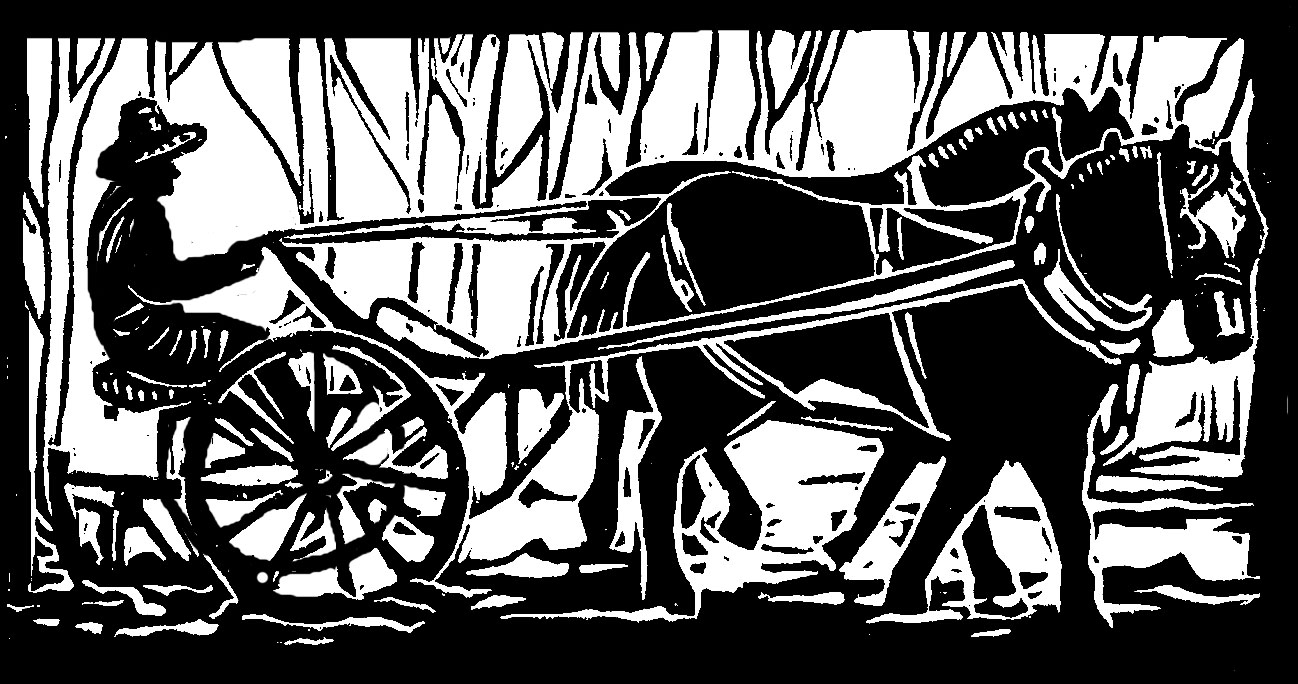Not long ago, we applied for a Climate Resilience grant, saying everything that is wonderful about working with draft horses. Draft animals are an excellent source of both power and fertility, especially for a small acreage such as our farm. Draft horse work reduces soil compaction, carbon emissions, fossil fuel use, and pollution, as well as protecting species diversity (particularly amphibians), increasing soil health and capacity to hold water, and benefitting farm profitability and self-sufficiency.
Alas, we did not get the grant. But we still got the horses! (Of course, we had to use our own cash, earmarked to fix the rotting foundation of our house, to buy the horses. But hey, maybe the house will keep standing for a long time yet.)
We’ve been looking for horses for a while, and we had several leads on available teams. I was hoping for a short stocky mild team, exactly like the horses we have now, whereas my fellow was open to any kind of horses, as long as they were well-trained and could do the field work.
After two disappointing horse trips, my fellow went up to northern Maine, to visit three teams, carriage horses in Acadia National Park. It was supposed to be a two-day trip, with a knowledgeable horse teamster going along, while I stayed home to watch the greenhouse and our four horses.
But my fellow kept sending me email messages: staying another night, so I can truck one team of horses from northern Maine to join the other two more southerly teams. Staying another night, so I don’t arrive home with new horses at midnight. Staying another night, because the truck sputtered and quit on the highway, and I want to get it fixed before I’ve got a trailer full of horses.
Also he wrote: I’m thinking of buying the smallest team of the lot. What do you think?
Sure! I emailed back, and then I went to tell our four horses in their winter paddock about the nice small team, coming home soon. But when my fellow finally arrived on Monday afternoon with the horses, they looked mighty big.
“They’re really tall,” I said doubtfully. “I mean they’re beautiful. But they’re really tall.”
“They’re really nice,” said my fellow. “So nice you’ll think they’re short.”
“Oh, golly,” I said, “These were the smallest ones?”
“They’re leggy, but look at their little feet. The other teams had giant dinner plate feet.”
“Oh, golly,” I said.
“They’re your favorite color,” my fellow added, which was true. I love a bay horse, a rich red-brown coat with black points: mane, tail, ear edges, and lower legs. I like to call a bay horse “a horse-colored horse.”
“They’re probably sister and brother, a mare and a gelding, 7 and 8 years old.” My fellow kept talking, as we moved our four horses from the paddock to the pasture. Our four were so ecstatic about going out on grass a month early that they didn’t even worry about the full horse trailer in the driveway. Of course, there wasn’t really much grass, and we gave them hay, but even the idea of grass is highly exciting. Plus it meant we could put the new horses in the paddock to get them used to things around the barn, without the fireworks of introducing everyone.
The new horses came off the trailer beautifully. They looked around curiously, and followed nicely up the driveway, while our four lined up at the pasture gate in astonishment and then went bucking and galloping away. The new horses were curious, but calm. They both started eating hay in the paddock, always a good sign of a relaxed horse.
I went over to the team. “I can hardly reach your backs,” I said to them, as the horses sniffed me in a friendly way.
“See?” said my fellow. “See how nice they are?”
“Fern and Willow,” I said. “Is that true? Are you so very nice? I think you must be. Welcome to your new home!”
Originally published in the Monadnock Shopper News, April 3 - April 9, 2024
